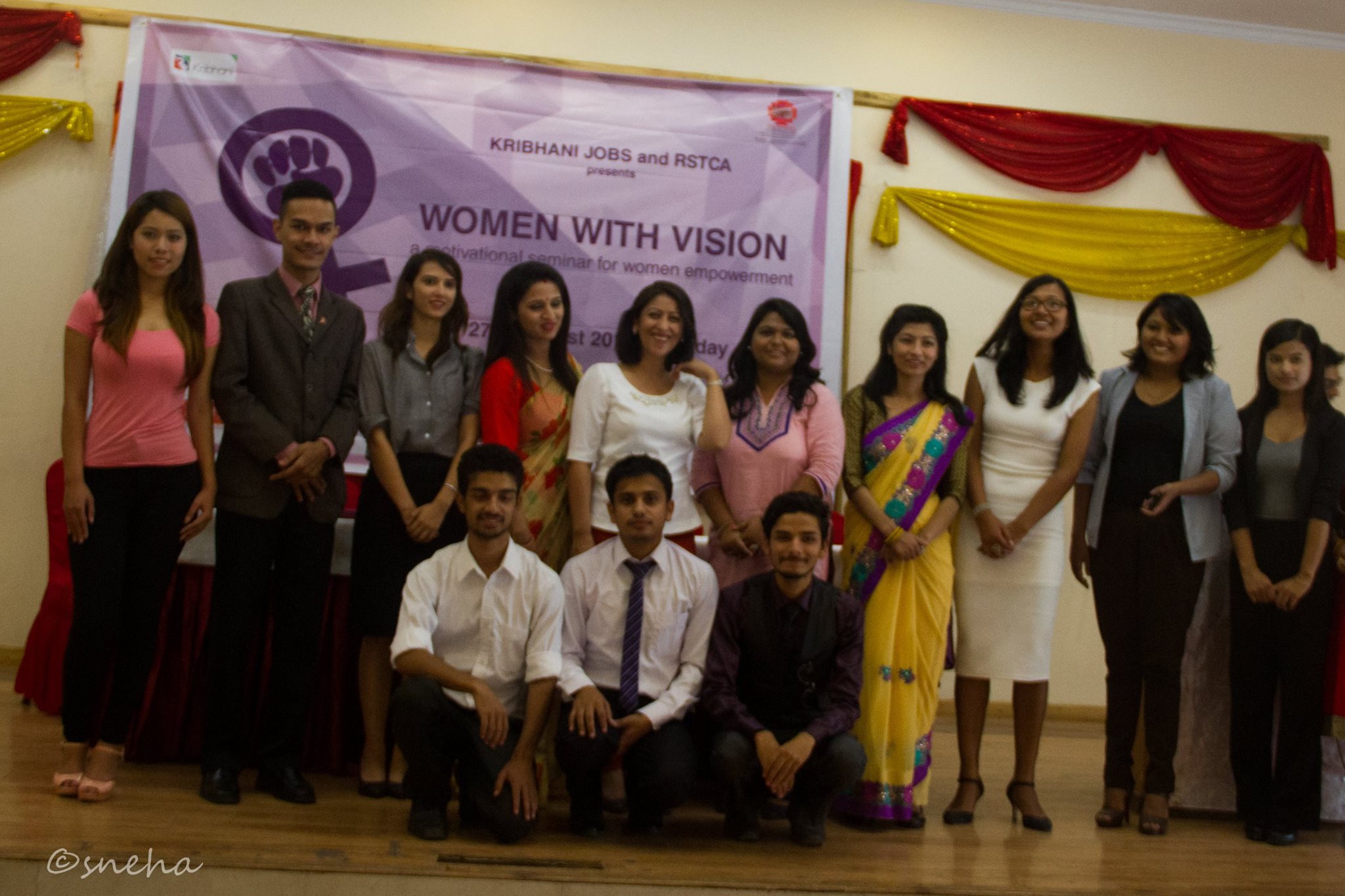Women have vision, dream, hope, trust, belief, value and guts to make a change and live their dreams. But, they also have many hurdles in their life while pursuing their goals, including family, friends, culture, society and many more.
A national conference ‘Women with Vision’ was recently organized in the capital by RSTCA in association with Kribhani Jobs where 11 visionary women shared the stories of their struggle and success.
The event also provided a platform for these women who have endured, succeeded, sustained, adopted and created a huge opportunity in their area and welcomed, introduced and awarded along with conveying of their success stories, hardships, struggles and motivating stories to the public.
Here we present the stories of these visionary women and their take on the present situation of women in Nepal along with the measures needed to apply for them to come forward:
Bhagwati Chaudhary, Former State Minister for Forest and Soil Conservation
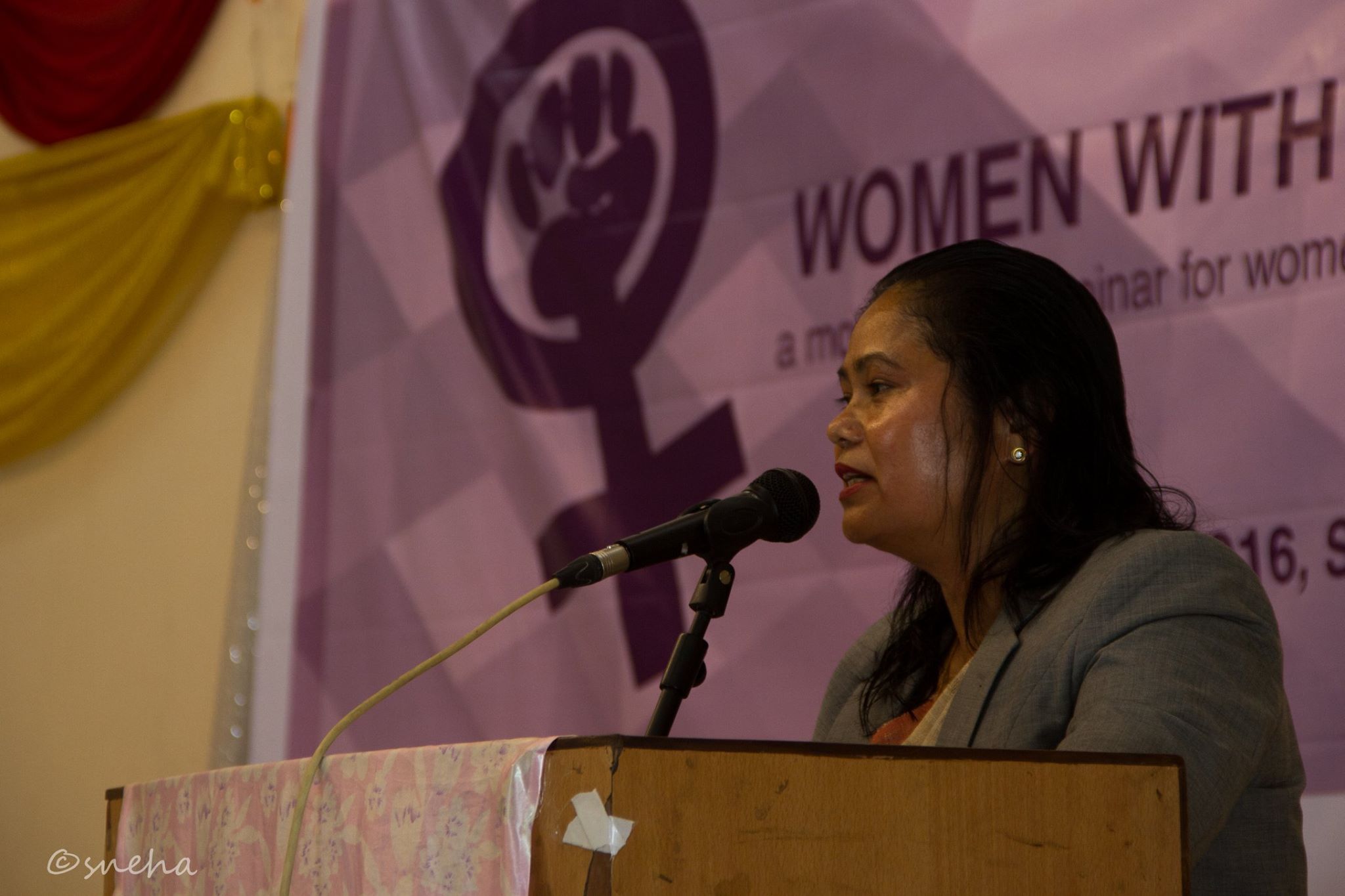
Chairing the ceremony, Bhagwati Chaudhary, Former State Minister for Forest and Soil Conservation, Government of Nepal, shared how women in Nepal are politically discriminated and gave insightful opinions on how their they can be brought forward. “Nepali society, law and culture have been playing a role to bar women from moving forward. Traditional culture and lack of equal rights for women by the law of Nepal is hindering the progress of women,†she shared. She also talked about the issues of women and the violences against women in Nepal.
Also a member of the Parliament in the first Constituent Assembly of Nepal, she shared how the first constituent Assembly was very inclusive with people from all religions, classes, castes and every other category, but because of lack of political will, the participation of women in the second Constituent Assembly fell to mere 24%.
“Though women hold 51% of the total population of Nepal, they are nowhere to be seen in leadership positions in different organizations. Even in those organizations that are solely for women, board of directors and other seniormost positions are held by men only,†she lamented.
She also expressed dissatisfaction on the new citizenship law as formulated in the new constitution of Nepal not being implemented yet.
Talking about her own self, she shared how her family itself didn’t support for her higher education, instead tried to marry her off.
She also pointed out how the lack of female teachers in schools is also causing problems for girls in continuing their education.
Concluding her speech, she said that there is a lack of women involvement in various policy-making sectors in the nation. “An strategical vision is needed for changing the scenario,†she added.
Roshee Lamichhane Bhushal, Lecturer at KUSOM
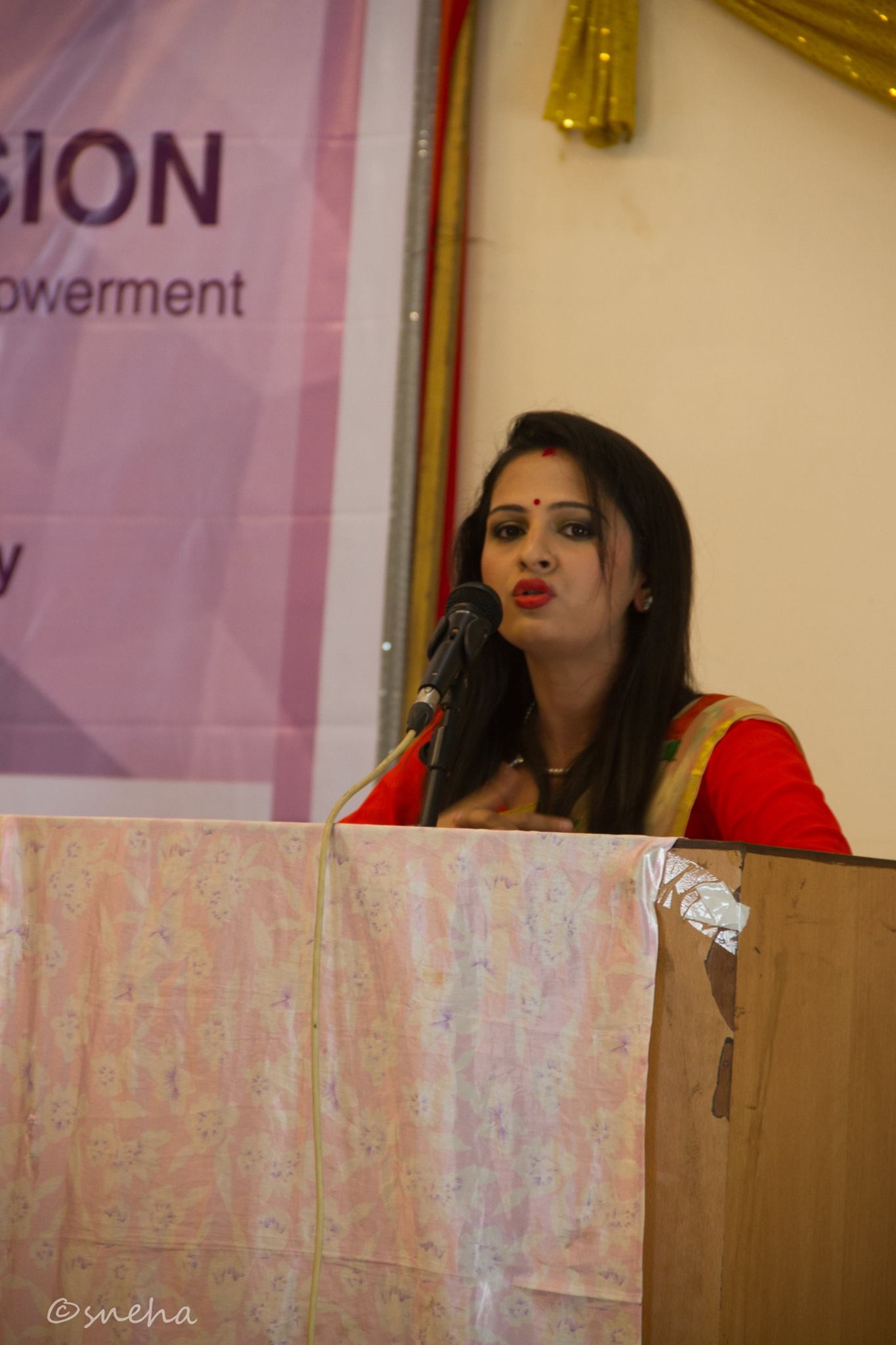
Talking on the occasion, Bhushal shared that women these days are far more privileged than those in earlier times.
“But, there is still a need for change in the mindset of men along with the change in their behaviour. Most of the time, male staffs in any organization don’t even bother to appreciate the efforts put by women in the organization,†she said. “Though the number of women team players in the corporate sector is increasing, the situation about the number of team leaders is not just like that.â€
Giving a reference to the women leading the Silicon Valley tech giants, she said that it’s only Sheryl Sandberg, the Chief Operating Officer at Facebook who is a noticeable figure. “Rest of the companies have not even bothered to appoint women in leadership positions,†she said. She also added that out of the total of 190 nation states in the world, in only 9 countries have women leading as the head of the state.
Raveena Desraj Shrestha, Chief Business Officer, Mega Bank Nepal Ltd.
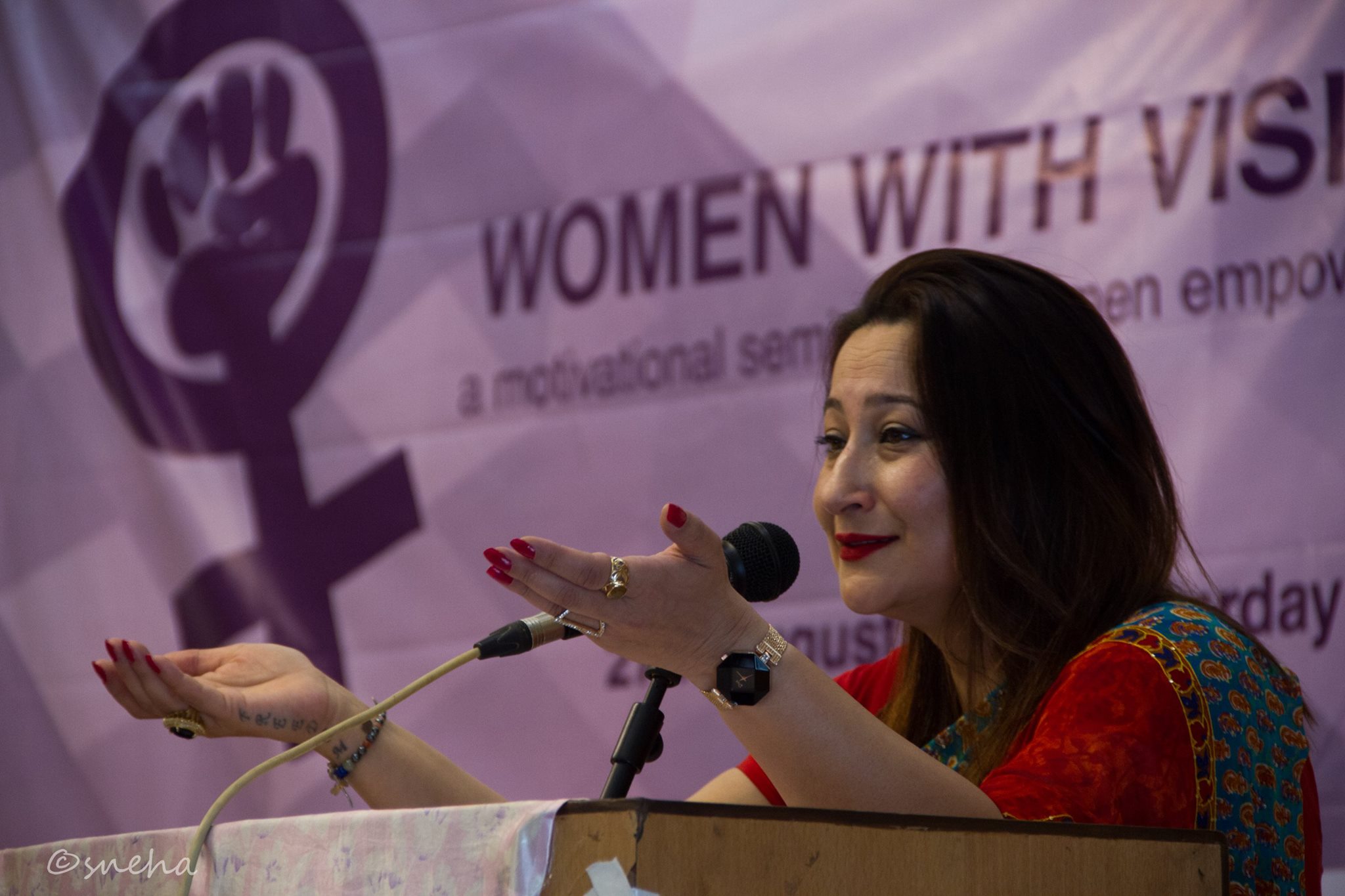
Similarly, talking on the conference, Raveena Desraj Shrestha accepted that there is an imbalance in the world. “But, what should we do now? Fight against the men for creating the imbalance?†she questioned.
She made all the participants realize their contribution till now and who they are and what they are doing. “We need to accept that the mistakes are made on our own and also the successes are of ourselves,†she said. “But, unfortunately, for the women in Nepal, the success is on how they have managed their family and their ability to keep the relatives happy. We need to question that trend,†she added.
Smriti Tuladhar, Head of HR and Business Development Manager, CIWEC Travel Hospital
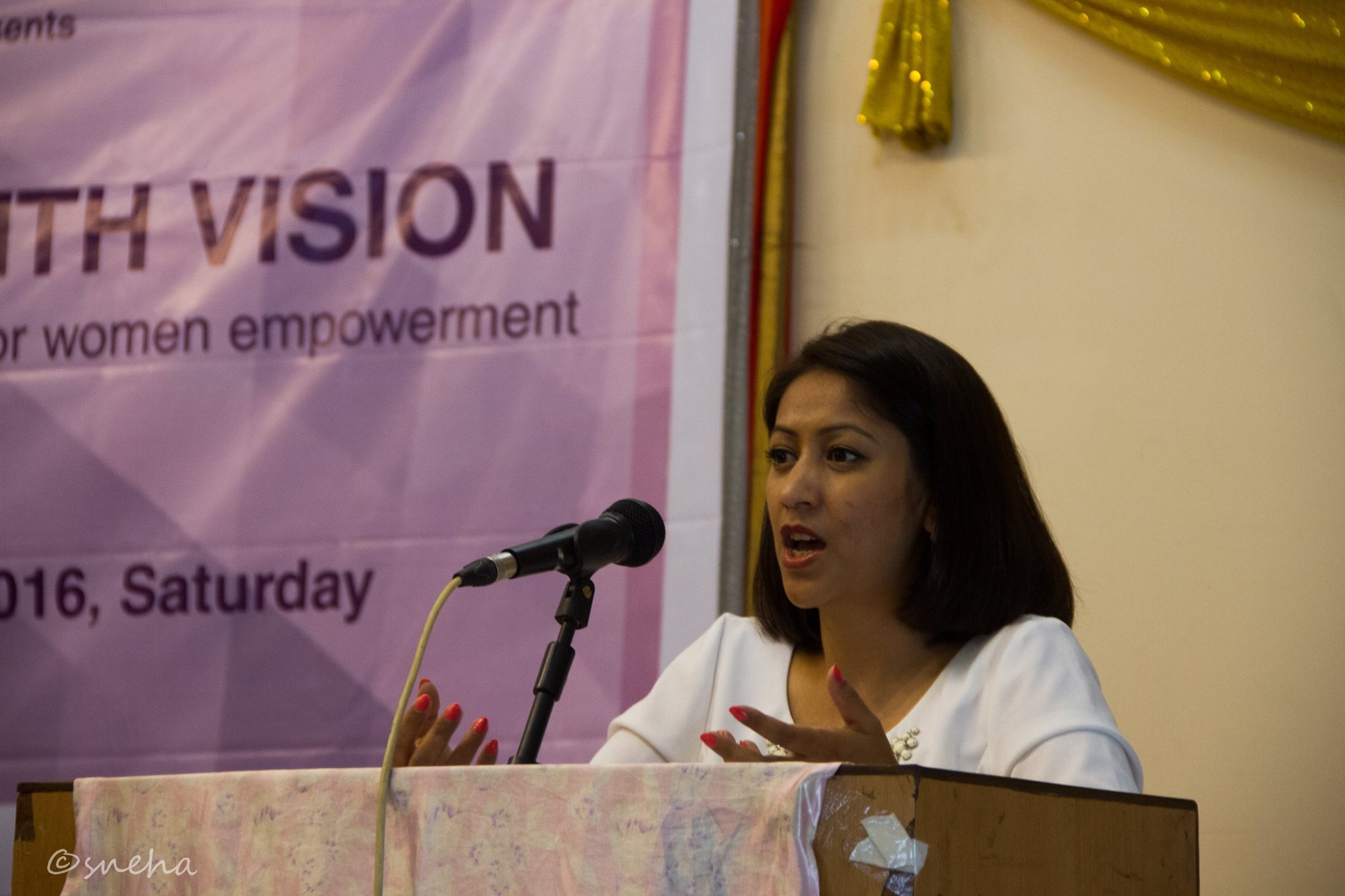
Tuladhar started the session sharing about the experiences from her first job.
“At the age of 21, I joined job with a salary of Rs. 2500. And, at the age of 25, I had been earning Rs. 5000,†she said about her early days of joining the job.
She also shared how both of her parents empowered their children, both daughters, and made them to understand the business they owned, the market and making decisions on taking it further.
In the programme, she expressed her dissatisfaction on comparing girls to boys as really a wrong idea, referring a Nepali culture where people often say “Chhori bhayera pani kasto chhora jastai†i.e. she is a daughter but so manly.
She once went to work in a rural village in Rukum district in the Midwestern region of Nepal and was shocked to see the entire village being run by women.
After her return from there, the eyes of society towards her changed and everyone took her as a courageous lady.
“It took me a whole lot of courage and support to reach where I am now,†she said.
In the programme, she also shared that the professional notion of office hours i.e. 9:00-05:00 needs to be changed. “We need to come out of this boundary to be successful,†she said. She also added that the business organizations need to be more flexible to the women and their issues, with flexible hours.
“For every person, the mission, vision and goals are very important to succeed and flourish and reach the position one aspire to. Integrity, hard work, intelligence, empathy and understanding the problems of others and the habit of coming out of the comfort zone are essential to succeed,†she concluded.
Sabita Upreti, Special School for Disabled and Rehabilitation Centre
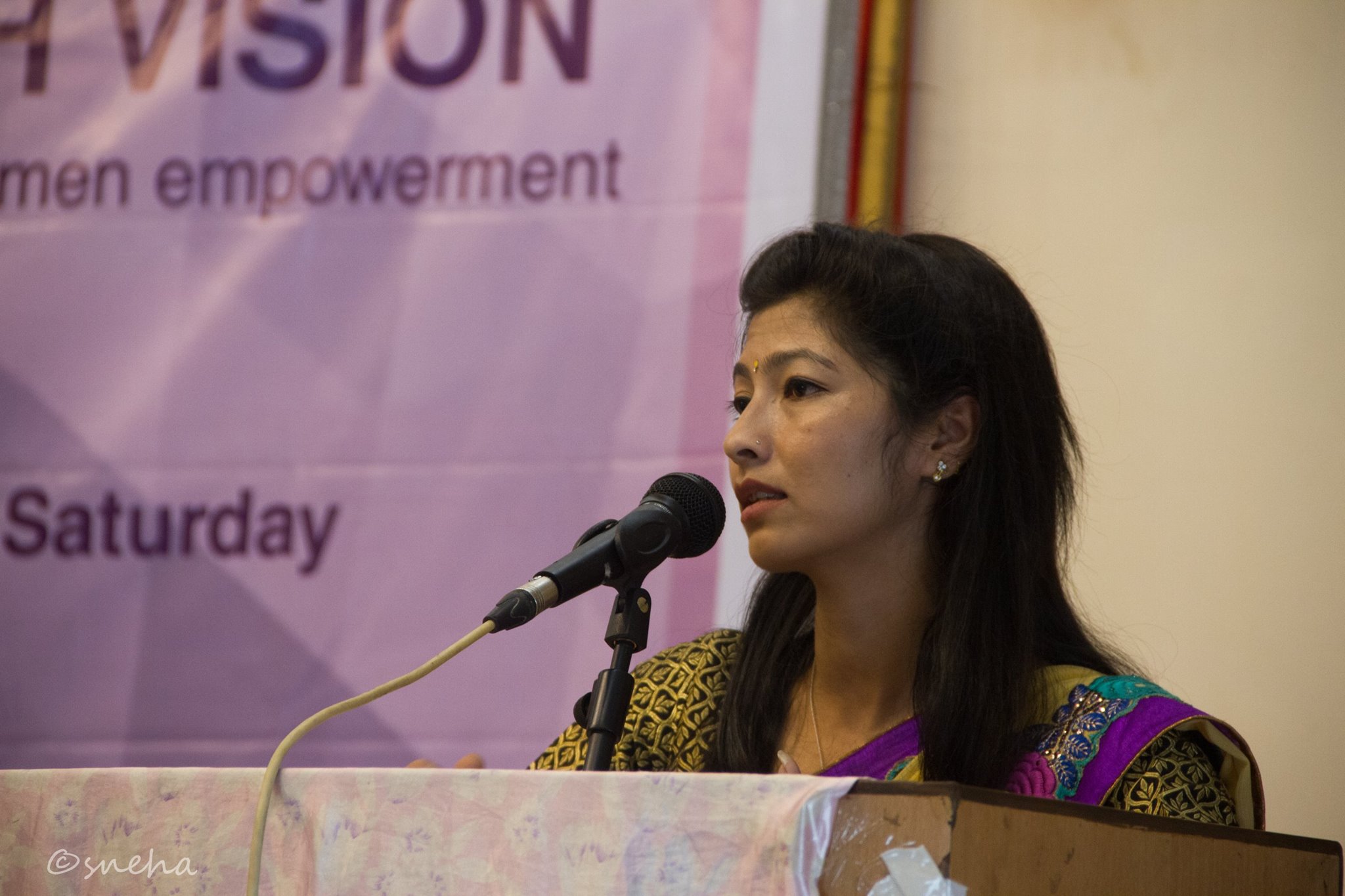
Born in Dolakha, studying till the 10th class was the greatest of challenge for Upreti that time.
After completing SLC, her brother brought her to Kathmandu, and she joined management courses at the Pashupati College in Chabhil.
After 1 year of coming to Kathmandu, at the age of 15, she got a teaching job in a School with 2100 as salary. Needing to pay a house rent of Rs. 1400 per month, she also started teaching tuition classes to the children to sustain her life in Kathmandu.
Later, she got a job in the National Disabled Fund. And, that was the time when her dreams and goals in her life changed. “I got so much inspired after hearing the stories of the disabled children, and felt that my problems and challenges were nothing compared to theirs,†She shared. “The children with autism were inhumanely dealt at that time. They were mostly chained and locked inside a closed room, and were often found eating their own excreta to fight the extreme hunger,†she said.
Then after she started to dream of being solely dedicated to this sector. She later went to India to get trained for 6 months on starting the school for disabled. In the year 2010, she managed to collect Rs. 5 lakhs by persuading her family and relatives to provide her the money for the cause, instead of giving dowry in her wedding, and formally started the school. Currently, 45 children with autism study in the school located in Pepsicola.
In addition, she has also launched an autism awareness campaign in Nepal.
Two children from the school have already been to Australia to present their success stories amidst a conference and she has also been awarded on 3 different occasions for her work.
These days, her mom reminisces the day Upreti was born as the happiest day in her life.
Subeksha Khadka, Miss Nepal International 2012
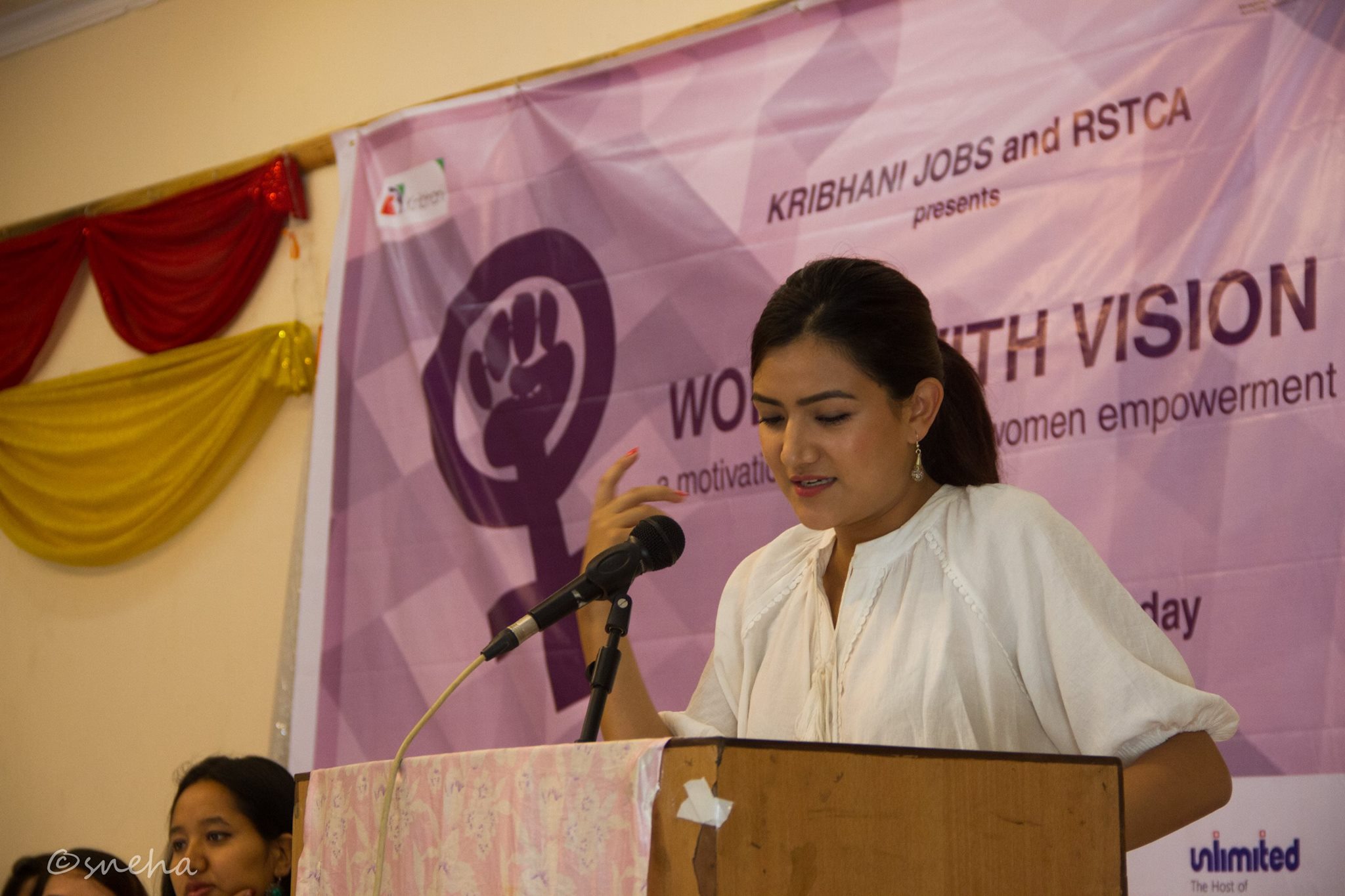
Similarly, Khadka, the other visionary woman in the programme shared her experiences from school days to reaching the position where she is now.
“As a child, and been to a girls-only-school, I was very shy and was among those few who hardly participated in any activities. But, after I joined college, I got to represent the whole batch of students to give a speech amidst the orientation programme. That moment changed me,†she shared. “Later, in the inter-college Olympiad organized in Budhanilkantha School, I won a gold medal, the first gold medal in my entire life. There was no turning back in my life then after.â€
Saying that we have always been settled for less, she encouraged all the participants in the programme to be the best version of themselves.
In the programme, she also shared her journey into the Miss Nepal 2012 as the youngest participant, at the age of 18 years and being crowned as the Miss Nepal Earth (second runner up) in the competition, and also the owes of working in the field of media, as a presenter of a TV show.
Sunita Nemaphuki, Chairperson at R&D Innovative Solution Pvt. Ltd. and Editor at Krishak ra Prabidhi
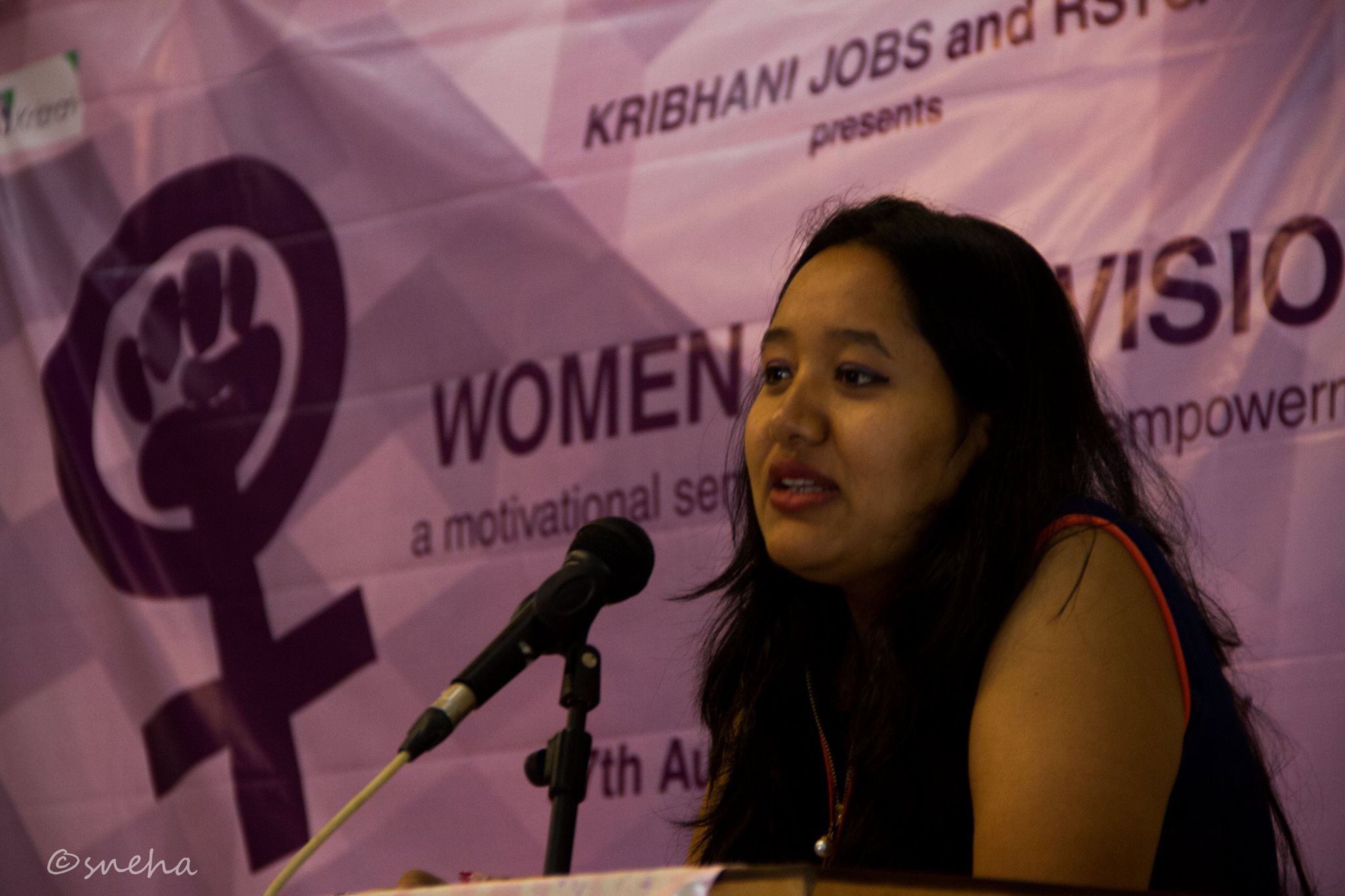
In the session, Nemaphuki shared how she revolted with her dad and even left the home to work on her own to later start an advertising agency, at the age of 19 years.
Saying that there is no education-bar and age-bar to be a successful person, she asked the participants in the programme to not to ignore what all others say and move ahead.
“The only thing required for one to be successful in life is the extra-hours of work and dedication towards one’s work. If you do this, everything will fall in place,†she shared on the occasion.
Bhawana Bhatta, Women and Youth Activist at Youth Action Nepal, Board Member at NGO Federation of Nepal, and a member of National Youth Council
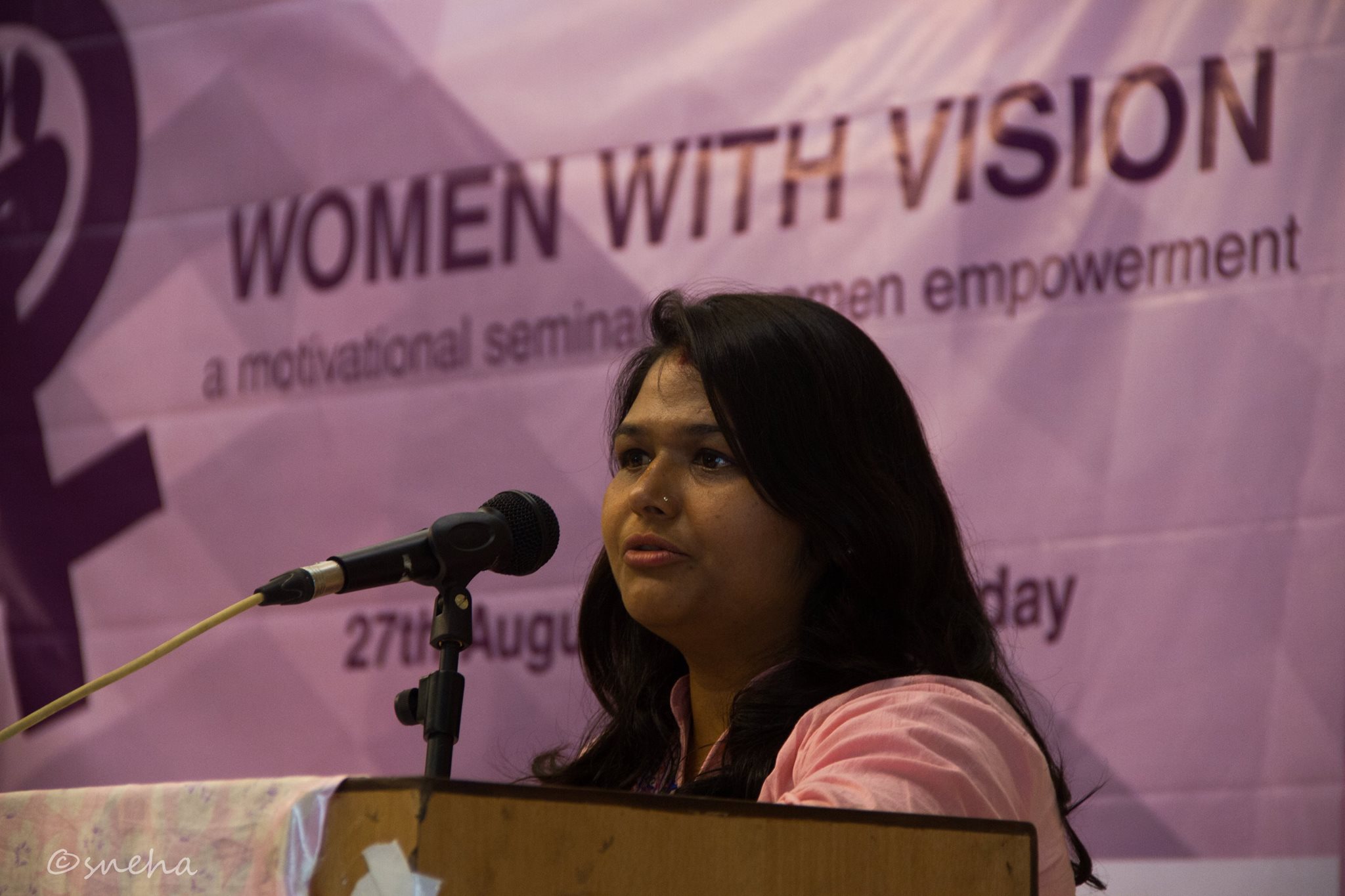
Bhatta shared her story of leaving her village only after completing her SLC, and starting working just after completing the +2 degree and learning everything on her own.
“I now give credit to myself for being where I am now,†she shared.
She also mentioned the necessity to share everything with one’s family so that the family wholeheartedly supports one in their career and future.
Nikita Acharya, Co-Founder at UG Cakes and CEO/Co-Founder at Urban Girl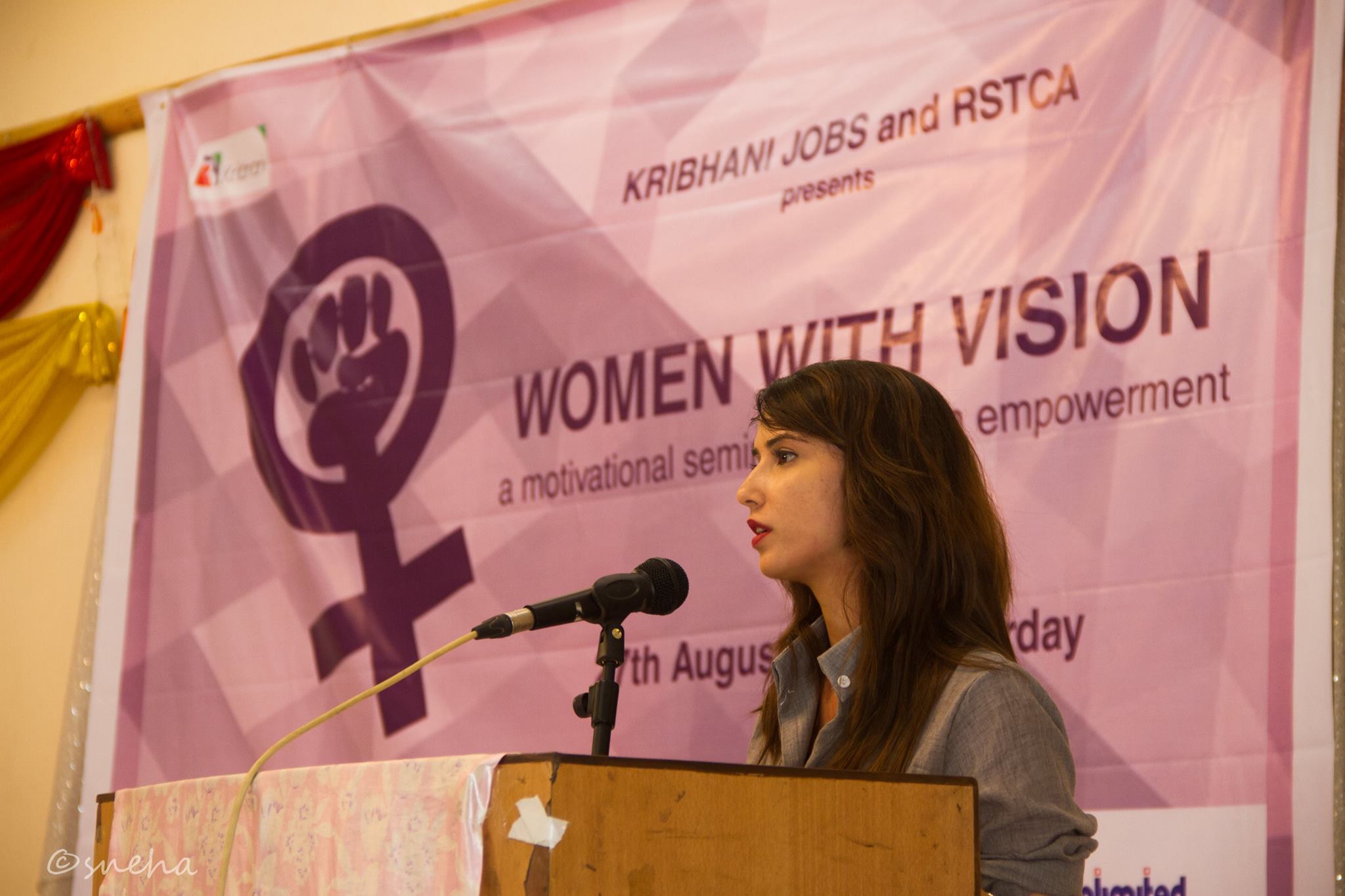
At the age of 19 years, she started the online shopping portal Urban Girl. It was hard to manage time for the study while running the business, but she managed to take both the things forward simultaneously.
In the programme, she shared how she was fearful to not to let her parents know about her works. “Only much later did I show my parents of me being featured in the papers and magazines for the good work that my company was doing,†she said, adding “that was the first information to them that I owned a business and had been working besides studying. They were very proud of my work that time. I cannot forget that moment.â€
“In doing business, I easily got support from my family and the society and now I feel like the society supports to those who really want to do something,†she said. “Nepali society has provided that environment to me, and I also have gotten supports from my peers,†she added.
Started not long ago by 2 people and themselves as the working staffs, the company now has grown to 26 people working together, in a space of 2200 sq. feet in New Baneswor.
Now, in her company, more than 80% of the employees are girls and they themselves do all the major works. In UG cakes, they have also started to provide trainings to women bakers, making more women economically independent.
Apekshya Niroula, a lawyer and Joint Secretary at ANNFSU, Purbanchal University National Comittee
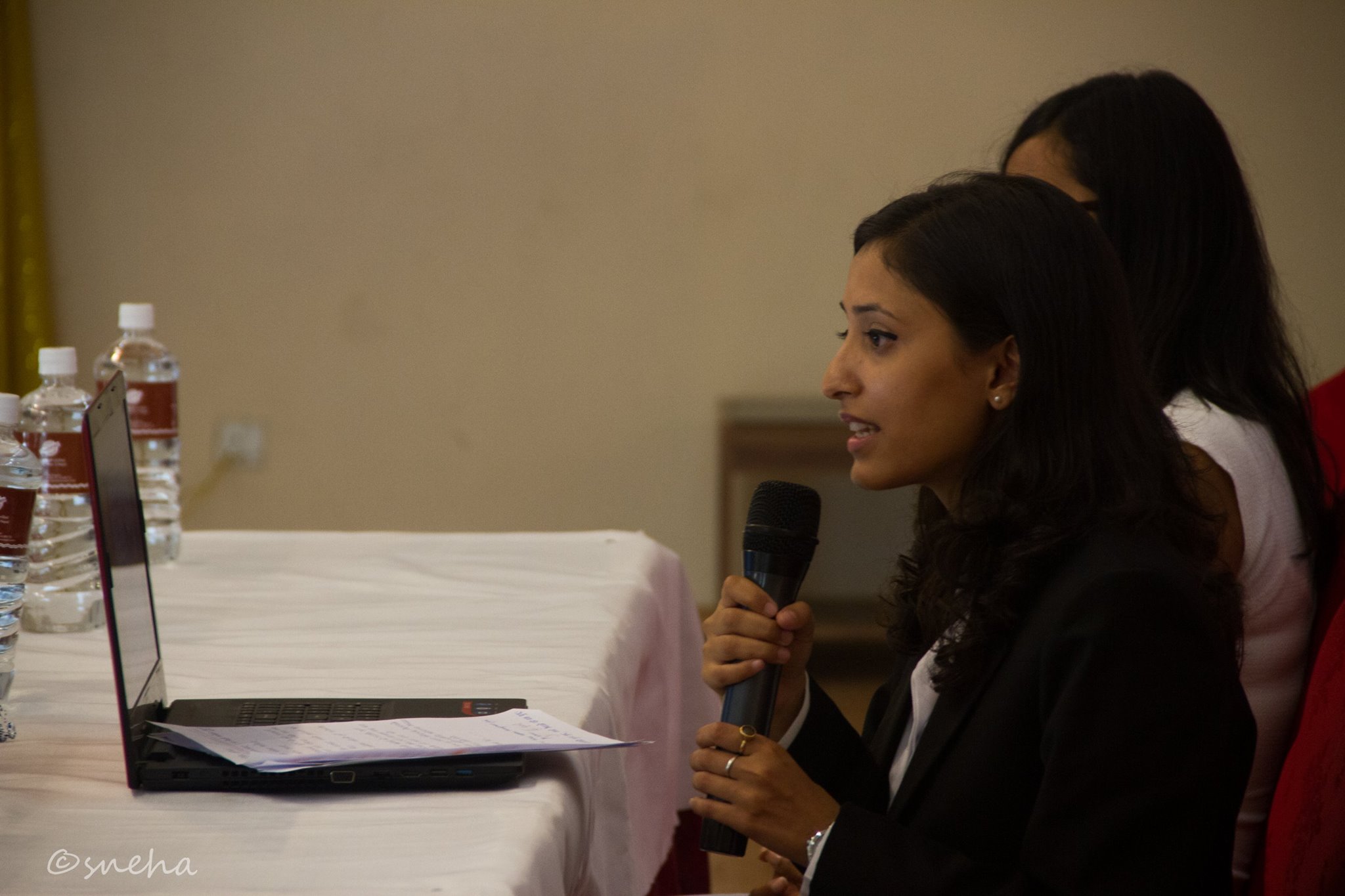
Sharing her experiences as a human rights activist since the last 7 years, Niraula said, “Women in our society, though being religiously respected, are almost barred outside the home and are living within the boundary of 4 walls. In general practice, they are mostly limited to household chores.â€
Because of patriarchal society, she shared how the women in our society are mostly taken as assistants to the husbands and taken as secondary citizens and just as birth-giving machines.
“In childhood, a girl needs to stay under the control of her dad, in adulthood, she stays under the control of her husband while her sons are controlling her in her old age. So, women are always in control of males throughout their life,†she expressed dissatisfaction about the general notion of our society. “For access to the property, she mostly needs to depend upon males. There is also a discrimination in providing education to children in Nepal. While boys are mostly sent to private and boarding schools, girls are enrolled in government schools,†she lamented.
She also clarified the provisions in the present Constitution of Nepal on the issues of marriage and family.
“In the first cabinet of BP Koirala in 1959, there was only one lady minister. Now, after 57 years, the situation is no better for women into politics in Nepal, with only one female minister present in the Prachanda cabinet.†She pointed out the presence of the only minister in the current cabinet of ministers.
There is a lack of women present in the law sector also though the Chief Justice of the Supreme Court of Nepal is female for the first time in the history, she said.
“The police department also performs no better on inclusiveness as there is sheer lack of women cell in the police department to work on the cases of Violence Against Women (VAW).
Clarifying about the situation of women in the laws of Nepal, she mentioned that the article 26 of the constitution of Nepal has well defined safe motherhood and deciding on the number of children as women’s fundamental rights.
“Though the present constitution of Nepal has removed most of the discriminatory laws persisting in the previous constitution, along with the addition of the provision for the proportional representation of women in different government organs, it is still not brought into practice to help them come forward. But, with it going to be implemented soon, the days ahead are brighter,†she shared.
Alina Prajapati, General Manager, Glocal Pvt. Ltd.
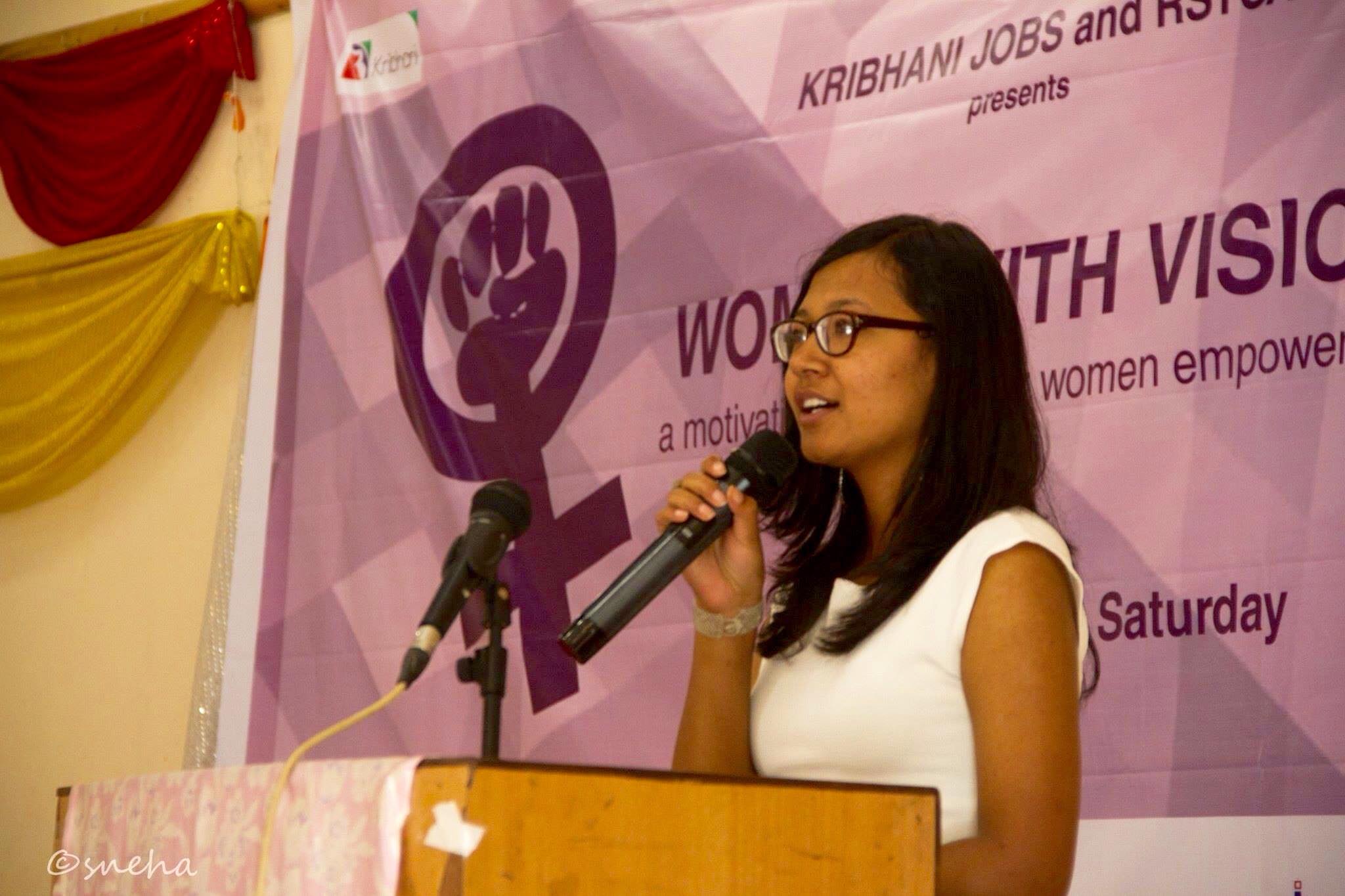
A blogger turned reporter because of her keen interest in the sector, Prajapati shared her experiences of working as an intern reporter in the organization for 2 long years. She also shared about her experiences of wearing multiple job hats: as a reporter, editor and the General Manager in the organization, including a student. In the programme, she also shared the journey of her life so far and how she became the person she is now.
Sharing why we have not been able to progress as expected, she said that we are still not free mentally as we are holding our wings on our own. “We need to come of this situation to progress and move ahead,†she shared.
In the programme, she also shared about her mission and plans for her upcoming project ‘Women in Digital Nepal’.
By Basanta Kumar Dhakal

